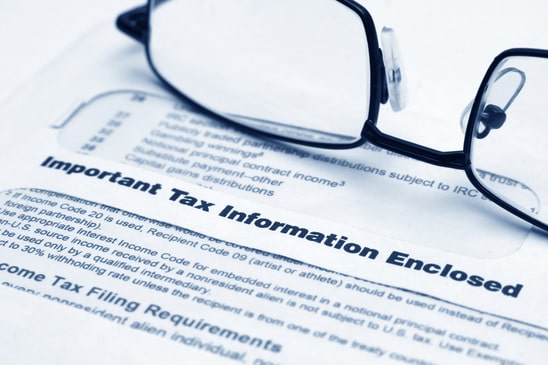Opinion of Valuation
Over the course of the past 15 years seller have approached me for what I call a broker’s opinion of value which is a tad different than an official valuation. I primarily focus on business with sales under 5 million and lots of main street type business. Reasons for this type of service vary from a dissolution of the partnership, selling off a part of the business, buying a part of business, divorce or other familiar issues or disputes where one of the equity holders in looking for a buy-out or similar situation. Courts may ask
For this as well as an expert witness. We have all the tools for comparable, recent transactions and experience to make this an easy process. Whether you need a simple 3-page report and 500-page court ready document we can help you with the process. Costs for this vary and start at as little as $495 so do be afraid to ask. We only get you what you need for the specific situation.

Valuation
There are many reasons to have an up-to-date business valuation. For example:
- You may need to sell the business due to retirement, health, divorce, or for family reasons.
- You may need debt or equity financing for expansion or due to cash flow problems. Potential financiers or investors will want to see that the business has sufficient worth.
- You may be adding shareholders (or one or more shareholders may wish a buyout). In this case, share value will need to be determined.
Regardless of the reason, how much your business is worth depends on many factors, from the current state of the economy through your business’s balance sheet. If for example, similar businesses in your area have recently sold, the value of your business will be determined in large part by the selling price of the previous sales.

Get It Done Right!
Business owners should not do their own business valuation. This is too much like asking a mother how talented her child is. Neither the business owner nor the mother has the necessary distance to step back and answer the question objectively.
So to ensure that you set and get the best price when you’re selling a business, I recommend getting a business valuation done by a professional, such as a Chartered Business Valuator (CBV). In the U.S., you can find Business Valuators through the website of the American Society of Appraisers (ASA) while in Canada you can find them through the Canadian Institute of Chartered Business Valuators.
A Business Valuator (or anyone evaluating your business such as an accountant) will use a variety of business valuation methods to determine a fair price for your business, such as:
Three Business Valuation Methods
Asset-Based Approaches
Basically, these business valuation methods total up all the investments in the business. Asset-based business valuations can be done on a going concern or on a liquidation basis. A going concern asset-based approach lists the business’s net balance sheet value of its assets and subtracts the value of its liabilities. A liquidation asset-based approach determines the net cash that would be received if all assets were sold and liabilities paid off. Using the asset-based approach to value a sole proprietorship is more difficult. In a corporation, all assets are owned by the company and would normally be included in a sale of the business. Assets in a sole proprietorship exist in the name of the owner and separating assets from business and personal use can be difficult. For instance, a sole proprietor in a lawn care business may use various pieces of lawn care equipment for both business and personal use. A potential purchaser of the business would need to sort out which assets the owner intends to sell as part of the business.


Market Value Approaches
Market value approaches to business valuation attempt to establish the value of your business by comparing your business to similar businesses that have recently sold. Obviously, this method is only going to work well if there are a sufficient number of similar businesses to compare. Assigning a value to a sole proprietorship based on market value is particularly difficult. By definition, sole proprietorships are individually owned so attempting to find public information on prior sales of like businesses is not an easy task. Although the Earning Value Approach is the most popular business valuation method, for most businesses, some combination of business valuation methods will be the fairest way to set a selling price.
Earning Value Approaches
These business valuation methods are predicated on the idea that a business’s true value lies in its ability to produce wealth in the future. The most common earning value approach is Capitalizing Past Earning. With this approach, an evaluator determines an expected level of cash flow for the company using a company’s record of past earnings, normalizes them for unusual revenue or expenses, and multiplies the expected normalized cash flows by a capitalization factor. The capitalization factor is a reflection of what rate of return a reasonable purchaser would expect on the investment, as well as a measure of the risk that the expected earnings will not be achieved. Discounted Future Earnings is another earning value approach to business valuation where instead of an average of past earnings, an average of the trend of predicted future earnings is used and divided by the capitalization factor. What might such capitalization rates be? In a Management Issues paper discussing “How Much Is Your Business Worth?”, law firm Grant Thornton LLP suggests:
- “Well established businesses with a history of strong earnings and good market share might often trade with a capitalization rate of, say 12% to 20%. Unproven businesses in a fluctuating and volatile market tend to trade at much higher capitalization rates, say 25% to 50%.”
- Valuation of a sole proprietorship in terms of past earnings can be tricky, as customer loyalty is directly tied to the identity of the business owner. Whether the business involves plumbing or management consulting, will existing customers automatically expect that a new owner delivers the same degree of service and professionalism?
- Any valuation of a service oriented sole proprietorship needs to involve an estimate of the percentage of business that might be lost under a change of ownership. Note that this can be mitigated in many cases, such as when a trusted family member (who may already be familiar with the client list) takes over the business.

What About Franchise Businesses?
Franchise agreements generally define how a franchise can be sold, and these vary by franchise vendor — check your franchise contract. Some contracts stipulate that the franchisors will buy back your franchise directly for a fixed price. Others provide assistance with valuation and locating a buyer, as it is in their best interest to make sure that the business continues uninterrupted.
The Best Choice May Be A Combination
Although the Earning Value Approach is the most popular business valuation method, for most businesses, some combination of business valuation methods will be the fairest way to set a selling price. The first step is to hire a professional Business Valuator; he or she will be able to advise you on the best method or methods to use to set your price so you can successfully sell your business.
